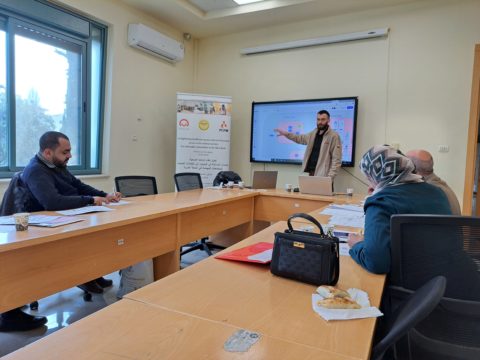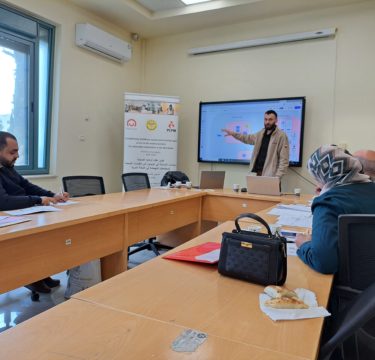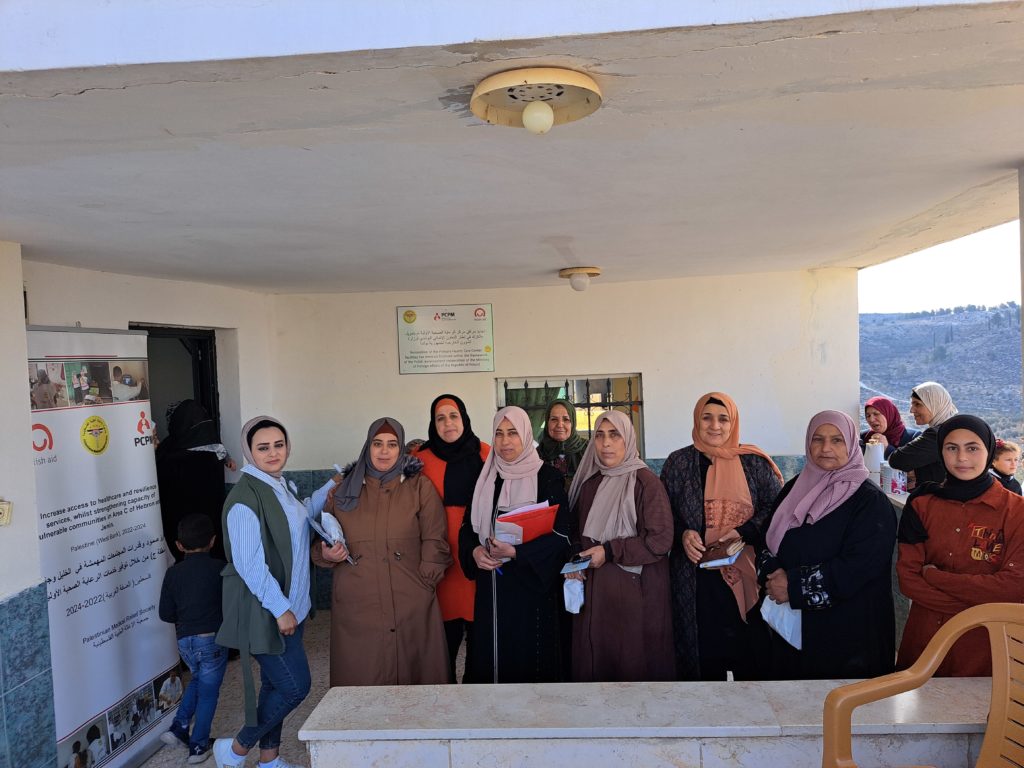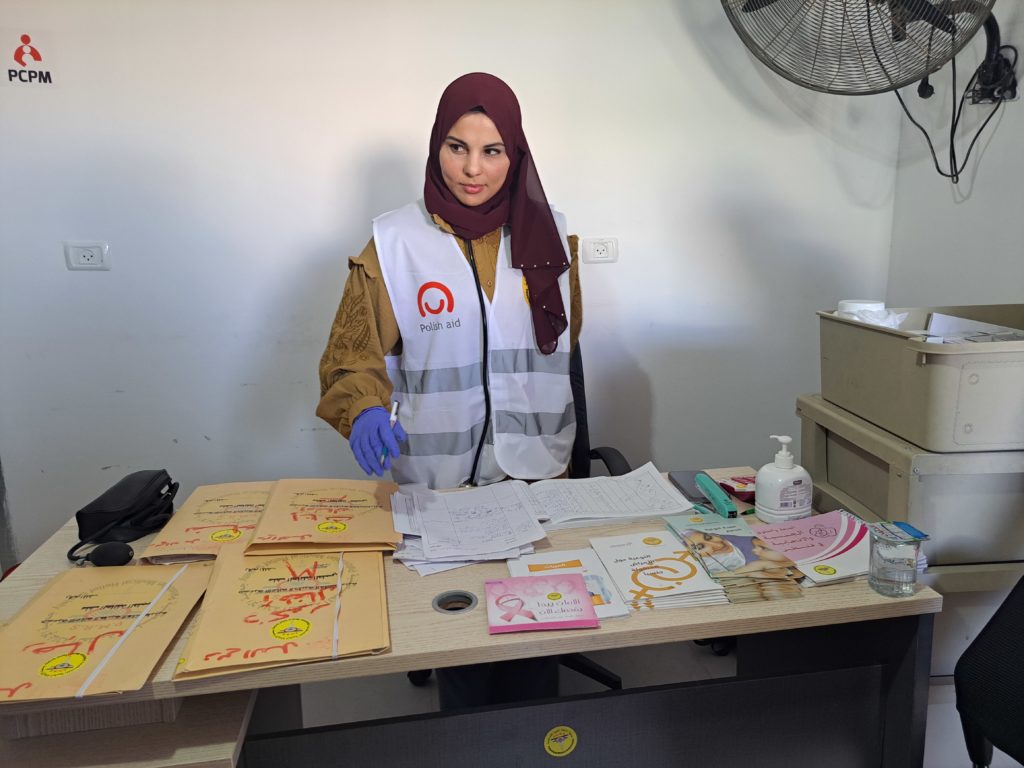Telemedicine in Palestine. PCPM is revolutionizing health care


The medical aid system in Palestine operates under tough conditions. Apart from the obvious health challenges, visiting patients with primary care is often equally challenging. Digitalization and telemedicine are supposed to be a partial answer. The Polish Centre for International Aid and a local partner are introducing a system that will improve aid in the West Bank.
The PCPM Foundation has been helping Palestine in the West Bank for 10 years. The first projects focused on supporting agricultural cooperatives through training, retrofitting farmers, and helping them sell their products, but since 2021, the priority has been medicine. Unfortunately, access to a doctor is becoming more difficult every year. The villages most excluded from medical assistance are those that lie in Zone C of the West Bank – an area that is under full, i.e., administrative and military, Israeli control.

“Such villages cannot build permanent medical facilities. The health service relies on mobile clinics that travel to buildings designed to receive primary care patients,” says Ewa Jakutajć, the project coordinator.
Between July and December, the clinics provided more than 7,000 medical consultations. After the Hamas-Israel war, the clinics are working in increasingly difficult conditions and are forced to adapt their operations to the ever-changing situation.
“We live far from schools, hospitals, and medical facilities. Most people do not have transport, and we live high up in the mountains. Water is also hard to come by in our village. The clinic, which has been renovated, will be very helpful, especially for pregnant women. Previously, they had to go to hospitals that are very far away”, says the village chief of the Hebron district.
Challenges in Palestine
One example is the village of Skaka. Unfortunately, the Ministry of Health does not provide medical services. The Palestinian Medical Relief Society, supported by the PCPM, is only one of the largest organizations that can help.
“Residents suffer from a lack of medical services and particular medicines. People have no way to get to hospitals, and this is made even more difficult by the many Israeli checkpoints. It is also harder for us doctors to reach the cut-off villages”, says doctor Ahmed from PMRS.
PMRS provides medical services focusing on children, men, and women. It tests diabetes and blood pressure, performs ultrasounds on pregnant women, and checks dermatological symptoms.
Telemedicine
The project of the Polish Centre for International Aid is pioneering. There is no telemedicine system in Palestine. Thanks to the Foundation, this is set to change, but what is essential is that it will be widely available and free of charge.
In the first step, as early as March, telemedicine clinics will be operating in the Jenin and Hebron regions where, because of safety regions, it is the biggest challenge to reach the medicine facility. An app has been developed with Palestinian IT specialists. Patients will have the opportunity to consult a family doctor and a gynecologist. Through the app, it will be possible to connect by both video and chat.

“Due to travel restrictions, mobile clinics cannot always reach all villages as scheduled. This shows that in Palestine, such a solution is not sufficient. An alternative that may partially fill this gap is telemedicine. In response to these needs, we are launching a telemedicine clinic, operating seven days a week for 12 hours a day. We are helping Palestine thanks to the Polish Aid program of the Ministry of Foreign Affairs of the Republic of Poland,” Jakub Majcher of the PCPM says.
Importantly, the PCPM is not just digitalized but creates a whole system that will help define and agree on a coherent process for carrying out tasks and procedures. This allows doctors to systematize their work, translating into more efficient and consistent work. Because with this, doctors as well as medics can be sure that repetitive operations are performed correctly.
Minimum standards have been developed that doctors must meet. In addition, two PCPM Medical Emergency Team experts have created a training program for GPs and gynecologists.
“In November, an evaluator will operate in Palestine. He will conduct interviews and collect feedback from users of the telemedicine system.” Jakub Majcher says we will implement possible improvements and extend the telemedicine clinics to the entire West Bank through him.
“Ultimately, we plan to open telemedicine clinics in seven regions of the West Bank in 2026. This innovative solution will significantly affect the availability of medical assistance regardless of where patients live and the changing situation in Palestine,” says Ewa Jakutajć.
Through the mobile application, it will be possible to contact a doctor via chat and video. In addition to creating an entire telemedicine system, the PCPM will also help to digitalize medical records, which are currently entirely paper-based. Once the app is implemented, every doctor and patient will have access to the treatment history.
